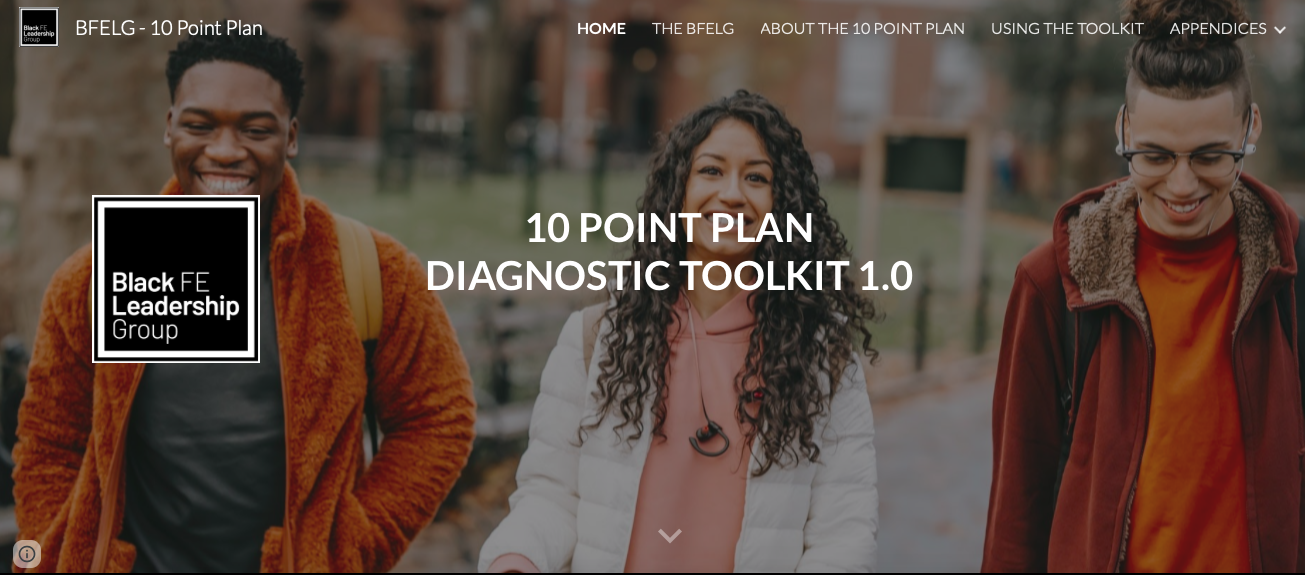Anti-racism toolkit launched by leadership group

The Black FE Leadership Group has launched a 10-point tool kit to inform, guide and challenge further education providers to tackle racism and promote diversity, inclusivity and equality across the sector.
The group wants the toolkit to be used by education providers and governing organisations across the FE sector, including the Department for Education and the Education and Skills Funding Agency, as well as member organisations such as the Association of Colleges and the Association of Employment and Learning Providers.
Organisations will pay an annual “affiliation” fee to access the toolkit and a range of training and development support from the BFELG.
News: Diversifying leadership will improve college finances
Long read: Meet Jeff Greenidge, the man tackling FE’s diversity problem
Diversity: 10 things leaders should be doing right now
Launching the toolkit, Amarjit Basi, former Cornwall College principal and member of BFELG, said it was the group’s “first contribution to enabling the sector to become truly antiracist in everything that it sets out to do”.
Recommendations include radical revision of curriculum and qualifications, an antiracism approach to CPD, the publication of annual data and redressing imbalances in recruitment processes.
Last summer, the BFELG wrote to the education secretary and the prime minister to highlight the sector’s shortcomings when it comes to tackling racism.
‘Covid has a vaccine; racism doesn’t’
Speaking to Tes, Mr Basi stressed that the group was not-for-profit and said the focus was on supplying organisations with the expertise to become truly antiracist.
He said: “We’re not looking at commodifying a product; what we’re looking at is a commodifying of a relationship through which we can help them to implement the toolkit into a whole organisational change. The notion of just using these as a set of questions to generate a self-assessment checklist of actions feels like box ticking.
“Covid has a vaccine; racism doesn’t have a vaccine. And therefore, it does require real planned commitment over a period of time, which is going to change every corner and every part of the organisation and every part of the sector. That is a medium-to-long-term agenda, it’s not a quick fix, it’s not ticking a box, it’s not something that you will do in three, six, 12 months.”
The toolkit: an outline

The toolkit centres on four Cs: curriculum, culture, climate and communication.
Curriculum
1. Radical revision of FE curricula and qualifications
Reflects contemporary British values, the influence of colonial history on society and the contributions of black* people to the arts, sciences and technology, historically and now, and considers the impact of racism on communities.
Culture
2. Antiracism central to CPD
Include race equality as a central component across training and development programmes, and for teaching training, the inclusion of antiracist pedagogy.
3. Institutions publish data annually
Publish college/training provider data on student performance, workforce, leadership and governance by ethnicity, including actions to address gaps.
4. Organisations to publish data annually
Publish sector organisation data on workforce, leadership and governance by ethnicity, including actions to address gaps.
5. Advisory groups led by experts
Ensure leaders of advisory boards/committees focusing on race equality possess insight and expertise in antiracism.
Climate
6. Re-addressing the imbalances in recruitment processes
Implement recruitment processes that proactively address imbalances in the ethnicity profile of the workforce at all levels.
7. Quality systems spotlight race equality
Evaluate the effectiveness of pedagogy, provision and leadership in relation to race equality.
8. FE commissioner and statutory bodies incorporate race equality assessments
Incorporate race equality data and impact assessments in all FE commissioner and other statutory bodies reviews, reports and recommendations.
9. Best-practice antiracism frameworks
Collaborate to develop and cascade best practice antiracist frameworks across the FE sector.
Communication
10. Positive optics and messaging
Ensure fair treatment and positive advocacy of black students, staff and communities through all internal and external communications.
*The leadership group stresses that “black” is used as an inclusive definition for people from ethnically diverse backgrounds who share a lived experience of the effects of racism.
You need a Tes subscription to read this article
Subscribe now to read this article and get other subscriber-only content:
- Unlimited access to all Tes magazine content
- Exclusive subscriber-only stories
- Award-winning email newsletters
Already a subscriber? Log in
You need a subscription to read this article
Subscribe now to read this article and get other subscriber-only content, including:
- Unlimited access to all Tes magazine content
- Exclusive subscriber-only stories
- Award-winning email newsletters